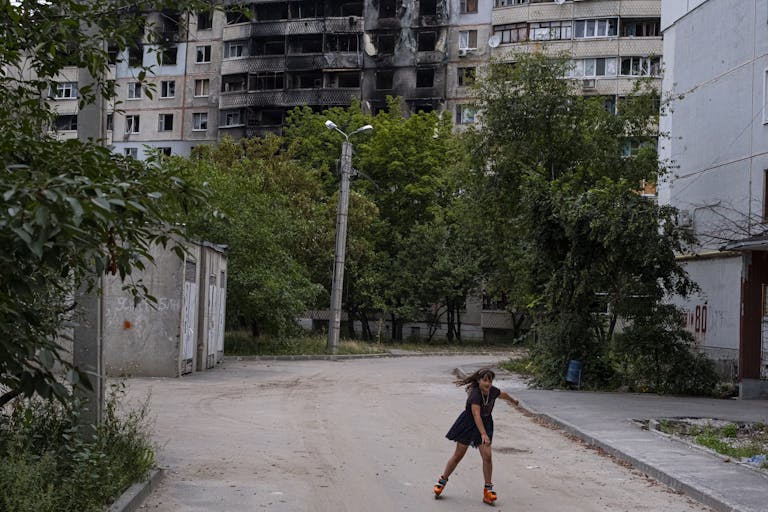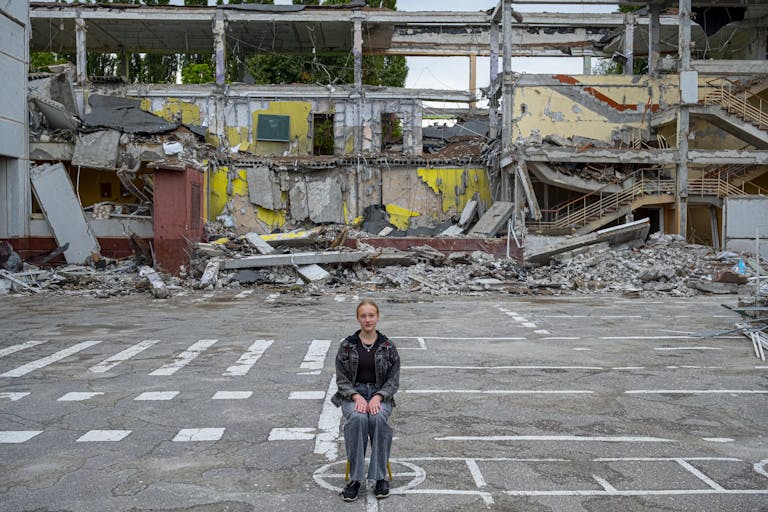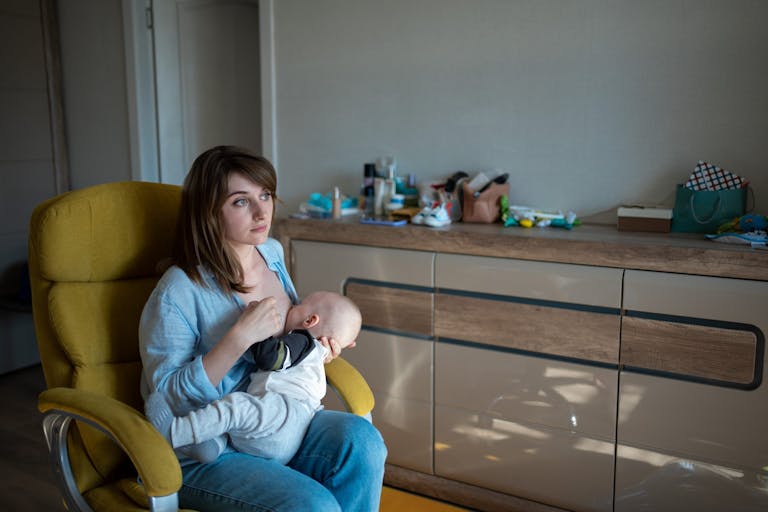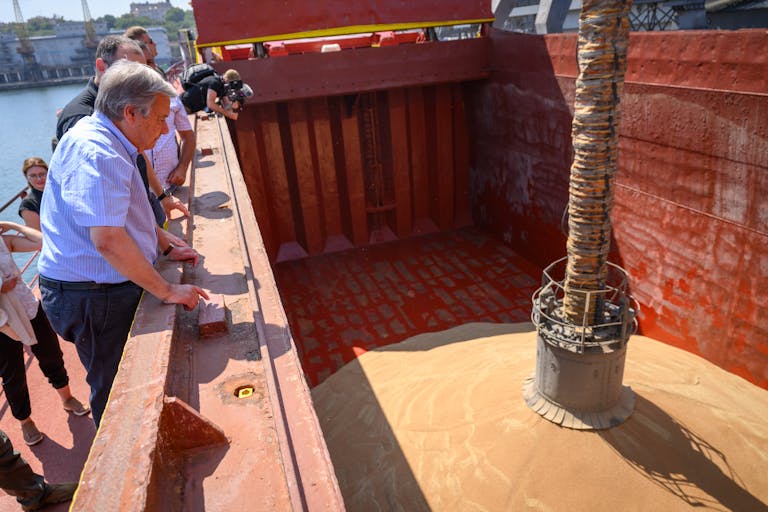Note: This page was last updated in November 2023. For the latest news and resources on Ukraine, please visit UN OCHA.
Russia’s full-scale invasion of Ukraine has passed the one-year mark, and the crisis shows no signs of letting up. The war in Ukraine has forced millions of people to flee their homes — sometimes with little more than the clothes on their backs. Others remain trapped in besieged areas without access to food, water, or essential services. This page will continue to share updates on how the United Nations is helping in Ukraine.
The UN has been stepping up to deliver lifesaving aid to those in need by providing emergency food, water, shelter, and medical care to the most vulnerable, including women, children, and the elderly.
One year in, amid the ongoing destruction, humanitarian needs continue to rise — but resources are falling short. Help the UN provide assistance as people continue to seek shelter and safety in Ukraine and across the region.
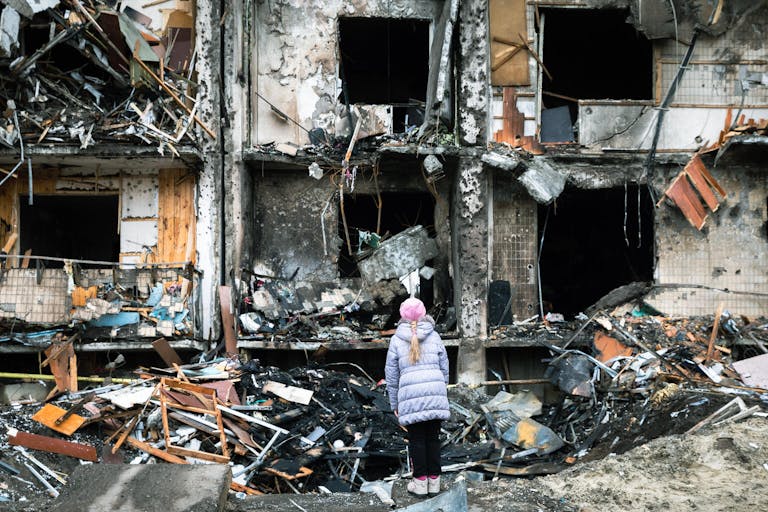
people affected by this crisis
reached with humanitarian assistance within Ukraine
refugees
people internally displaced
in funding required
of needed funds acquired
The UN is delivering emergency aid and assistance to people across Ukraine and neighboring areas — particularly women, children, elderly people, and those with disabilities. The UN has more than 1,400 UN personnel on the ground across all 24 oblasts in Ukraine.
See what UN agencies are doing to help the people of Ukraine as the conflict continues — and donate to the Ukraine Humanitarian Fund to show your support.
IAEA is monitoring the safety and security of Ukraine’s nuclear power reactors and providing technical assistance on the ground. Learn more.
More than half of Ukraine’s children have been displaced by the conflict. UNICEF is supporting health, nutrition, HIV prevention, education, access to safe drinking water, sanitation and protection for children and families affected by the violence. Learn more.
UNESCO is helping journalists cover the conflict in Ukraine by providing protective equipment and training on hostile environments. The agency is also mapping how host countries can support education needs for Ukraine’s youngest refugees. Learn more.
OCHA is coordinating the humanitarian response across the entire UN system to massively scale up services as quickly and effectively as possible. Learn more.
Fighting in Ukraine has destroyed hospitals and disrupted access to healthcare, putting girls and women at grave risk. UNFPA is deploying trained personnel, mobile clinics, hygiene supplies, and emergency reproductive health kits to protect the lives of mothers and their babies. The agency is also providing specialized spaces and services for survivors of gender-based violence. Learn more.
In response to the fastest-growing refugee crisis in Europe since World War II, UNHCR is delivering core relief items — such as emergency shelters, thermal blankets, and sleeping mats — as well as providing specialist protection services for children traveling alone and people with disabilities. Learn more.
The World Food Programme is providing emergency food assistance to families affected by the conflict in Ukraine, including cash, vouchers, ready-to-eat foods, and freshly baked bread. Learn more.
The World Health Organization has opened an operations hub in Rzeszów, Poland, deploying emergency medical teams and supplies across the border. The agency has also developed a pipeline of trauma kits to most Ukrainian cities, each of which contains enough surgical equipment and antiseptics to save the lives of 150 wounded people. Learn more.
The war in Ukraine, which has raged on for over 20 months, shows no signs of ending soon, leaving a trail of devastation and immense suffering in its wake, a senior UN official told the Security Council on Wednesday.
Russia has bombarded more than 100 Ukrainian towns across nearly half of its regions in the past two days according to the Ukrainian Government, many near the frontlines.
As the world’s attention focuses on the unfolding emergency in the Gaza Strip, a senior UN aid official on Tuesday urged the Security Council not to overlook the equally “brutal and far-reaching” crisis in Ukraine.
